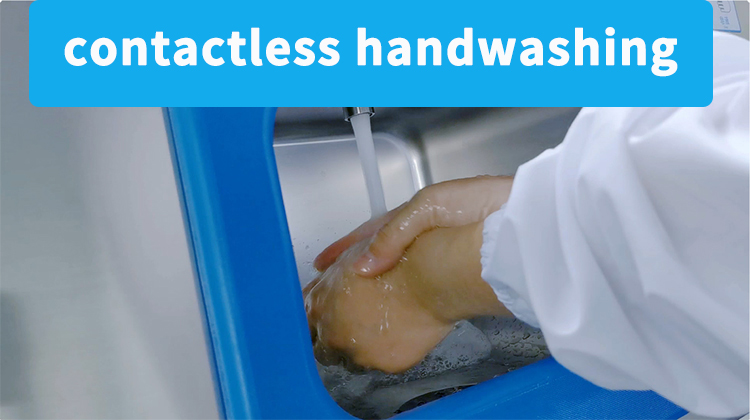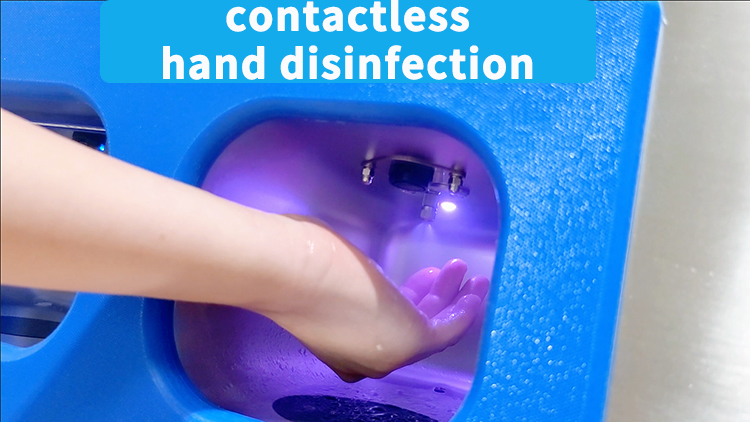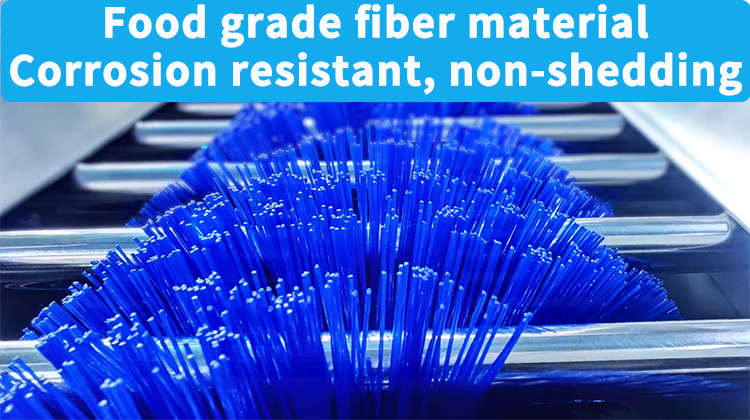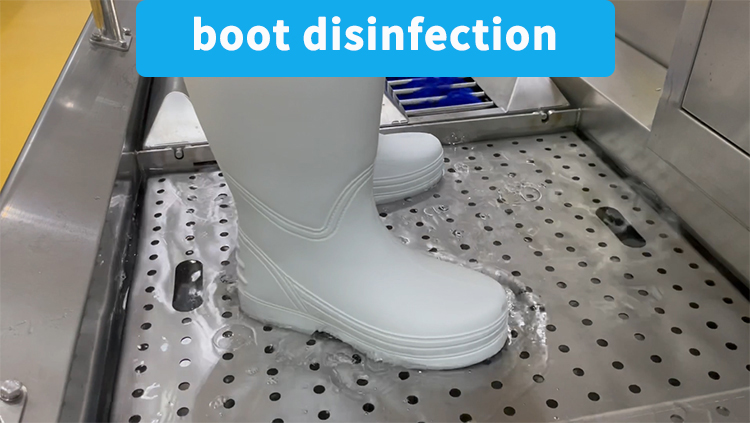Why do food factories choose hygiene stations instead of cheaper alternatives?
A personnel hygiene station in the food industry is a designated area or entrance systems equipped with facilities and tools to ensure that
employees maintain high hygiene standards of hands and footwear before entering food processing or handling areas or workshops. These
barrier stations are critical for preventing contamination and ensuring food safety.
In the food industry, maintaining high hygiene standards is not just a regulatory requirement; it is essential for ensuring the safety and quality
of food products. While hygiene stations can represent a significant investment, why do many food factories prioritize their implementation
over cheaper alternatives? Today, WONE is going to list some reasons for this.
1. Enhanced Food Safety
One of the primary reasons food factories invest in hygiene stations is to prevent contamination. These stations are specifically designed to
minimize the risk of cross-contamination in food processing environments. By providing dedicated facilities for handwashing and boot clean-
ing system, hygiene stations significantly reduce the likelihood of pathogens entering food production areas. The cost of a hygiene station is
justified by the potential consequences of foodborne illnesses, which can lead to severe health risks, product recalls, and financial losses.




2. Regulatory Compliance
Food safety regulations are stringent, and non-compliance would have serious repercussions. Hygiene stations help factories meet these
regulatory requirements, ensuring that employees adhere to proper hygiene practices before entering production areas. This compliance is
not only essential for maintaining operational licenses but also for protecting the brand's reputation. The costs associated with fines or shutd-
owns due to regulatory violations far exceed the investment in hygiene stations.
3. Durability and Reliability
Hygiene stations are built to withstand the rigors of industrial use. Constructed from high-quality, durable materials, they are designed to last,
reducing the need for frequent replacements or repairs. While cheaper alternatives may seem appealing, they often lack the necessary dura-
bility and effectiveness, leading to higher long-term costs. Investing in robust hygiene stations means fewer disruptions in operations and
consistent adherence to hygiene protocols.
4. Employee Compliance and Convenience
User-friendly hygiene stations encourage employees to maintain high standards of cleanliness. Features such as hands-free operation and
convenient access to cleaning supplies make it easier for workers to follow hygiene protocols. When employees are provided with effective
and easy-to-use facilities, they are more likely to comply with hygiene practices. This proactive approach to hygiene not only enhances food
safety but also fosters a culture of accountability within the workplace.
5. Comprehensive Solutions
Many hygiene stations come equipped with integrated features such as boot cleaning systems, hand sanitizers, and drying facilities. This
comprehensive approach ensures that all aspects of personal hygiene are addressed in one location. Cheaper alternatives may not provide
the same level of functionality or effectiveness, leading to gaps in hygiene protocols that could compromise food safety.
In today's market, consumers are increasingly aware of food safety issues. A commitment to hygiene not only protects public health but also
reinforces a brand’s reputation. Food factories that prioritize hygiene practices are more likely to gain consumer trust and loyalty. The invest-
ment in hygiene stations is an investment in a brand's integrity and long-term success.
While hygiene stations may require a significant initial investment, their benefits far outweigh the costs associated with cheaper alternatives.
By enhancing food safety, ensuring regulatory compliance, promoting employee accountability, and safeguarding brand reputation, hygiene
stations play a crucial role in the success of food factories. In an industry where the stakes are high, investing in proper hygiene practices is
not just smart—it's essential for protecting both consumers and the business itself.


 拷贝.jpg)
 拷贝.jpg)
 拷贝.jpg)
